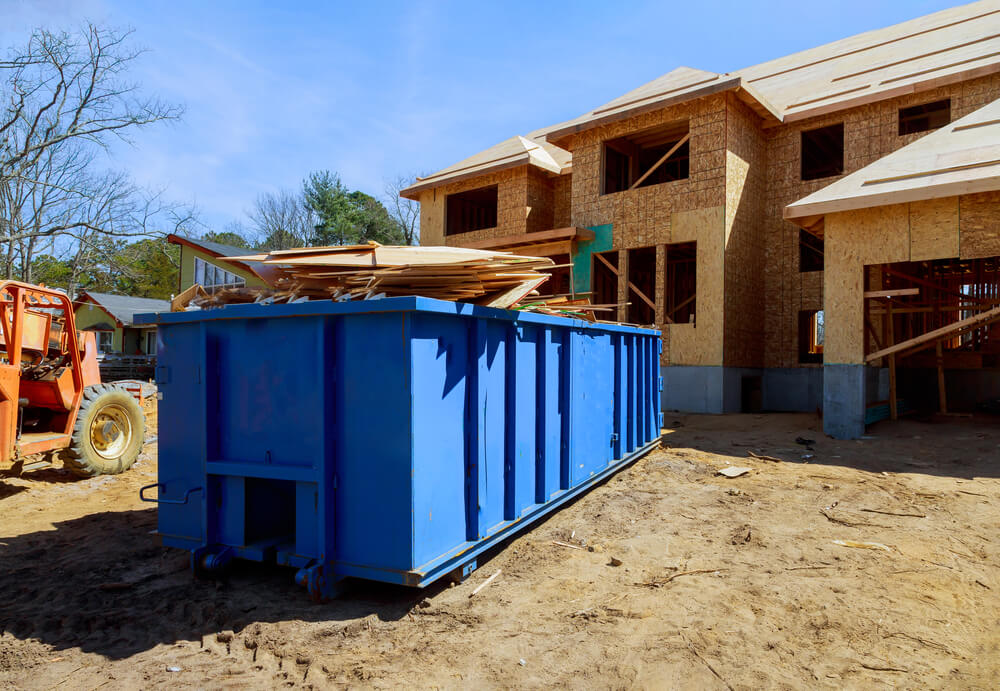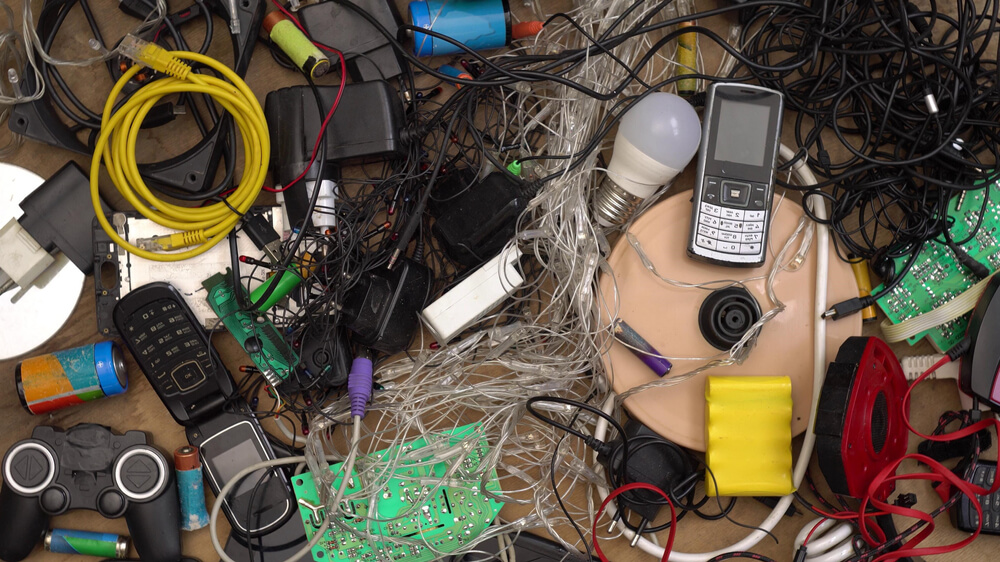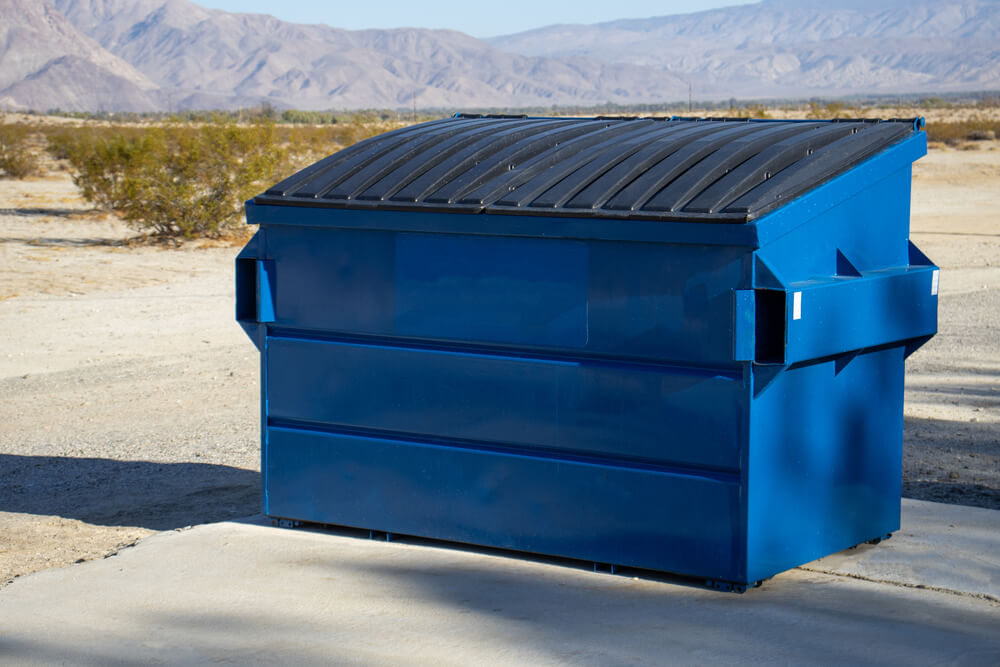When planning an event, whether it is a corporate gathering or a private celebration, one aspect that often gets overlooked is waste management. Yet, it is an essential part of any successful event. Proper waste disposal ensures a clean and organized venue and contributes to environmental sustainability. One of the most efficient ways to manage waste during events is through dumpster rentals.
Dumpster rentals offer a convenient and hassle-free solution for waste disposal. They come in various sizes to accommodate different volumes of waste, making them suitable for events of all scales. However, it’s not a case of ‘out of sight, out of mind’. It is crucial to understand what can and cannot go into these rentals to avoid potential fines and to protect our environment.
While dumpster rentals can handle a wide range of waste materials, there are certain items that are not suitable for disposal in this manner. These include hazardous materials, certain electronics, and specific types of yard waste. On the other hand, most common waste items from events, such as food waste, paper, and plastic, are typically acceptable.
This article brought to you by Dumpster Rental Service aims to provide a comprehensive guide on the dos and don’ts of dumpster rental disposal, ensuring your event runs smoothly and responsibly.
Deep-dive into items that ARE permissible for dumpster disposal
Understanding what constitutes “dumpster acceptable waste” is crucial for efficient waste management. Whether you’re an event organizer, a business professional, or an individual planning a private event, knowing what can go into your rental dumpster can save you from potential penalties and contribute to a more sustainable environment.

Discuss the various common waste items suitable for dumpster disposal
Common “dumpster disposal items” include a wide range of materials typically generated at events. These can be broadly categorized into general waste, construction debris, and yard waste.
General waste encompasses everyday “trash bin contents” such as:
- paper,
- cardboard,
- food waste,
- plastics.
These are items you would typically find in your garbage bin at the end of an event. They are generally safe for disposal in a dumpster rental, provided they are not contaminated with prohibited items.
Construction debris, often found at commercial events or during venue renovations, is another category of “waste container materials” that are permissible. This includes materials like:
- wood,
- drywall,
- metal,
- tiles.
However, it is important to note that some dumpster rental companies may have specific “dumpster disposal guidelines” for construction waste, so it’s always best to check beforehand.
Yard waste such as leaves, branches, and grass clippings, often generated during outdoor events, are also “allowed dumpster debris”. However, certain types of yard waste like stumps or large branches may not be accepted, so it’s crucial to clarify this with your rental company.
Examples and scenarios of commercial and residential waste items that can go into dumpsters
Let’s consider a few scenarios to better understand “permitted dumpster contents”. If you’re hosting a corporate event, your “dumpster trash types” might include paper, cardboard from packaging, food waste from catering, and plastic waste from water bottles or utensils. All these items are typically acceptable in a dumpster rental.
For residential events, similar rules apply. Every day “garbage bin items” like food scraps, paper plates, plastic cups, and general household waste can go into the dumpster. If you’re hosting a yard party, grass clippings, leaves, and small branches are also “waste bin inclusions” that are generally accepted.
Remember, while these are common examples of what can go into a dumpster, it’s always best to check the specific “trash container rules” of your rental company to avoid any confusion or penalties.
Exploration of items that ARE NOT permissible for dumpster disposal
Just as important as knowing what can go into a dumpster is understanding what cannot. Certain items are prohibited due to their potential harm to the environment or because they require special disposal methods. These “garbage dumpster regulations” are in place to ensure safe and responsible waste management.
Exploring hazardous, restricted, or prohibitive items that cannot go into a dumpster
There are several categories of items that are not considered “dumpster acceptable waste”. These include:
- hazardous waste,
- certain electronics,
- large appliances,
- tires,
- specific types of yard waste.
Hazardous waste includes items such as paints, oils, chemicals, batteries, and pesticides. These materials can pose a risk to the environment and public health, and therefore require special disposal methods. They should never be included in your “dumpster disposal items”.
Electronics, often referred to as e-waste, are also typically not allowed. This includes items like computers, televisions, and certain appliances. These items often contain materials that can be harmful if not disposed of properly.
Large appliances like refrigerators, air conditioners, and washing machines, as well as tires, are also not considered “permitted dumpster contents”. These items are bulky and can take up a lot of space in a dumpster, but more importantly, they contain materials that can be harmful to the environment.
Examples and scenarios of these items in a commercial or residential setting
Let’s consider some examples to better understand what cannot go into a dumpster. If you’re hosting a corporate event and you’re replacing old office equipment, items like computers, printers, and old fluorescent light bulbs should not be included in your “trash bin contents”. These items are considered e-waste and require special disposal methods.
In a residential setting, if you’re doing a home renovation, items like paint, solvents, and large appliances should not be part of your “waste bin inclusions”. These items are considered hazardous and require special handling and disposal.
Understanding these “trash container rules” is crucial for responsible waste management. Always check with your dumpster rental company for their specific guidelines and consider hiring a professional waste management service for items that cannot be disposed of in a dumpster.

Guidance on mitigating problems when you have non-permissible waste items
When you’re faced with non-permissible waste items, it’s essential to know how to handle them responsibly. Improper disposal can lead to penalties and harm the environment. Fortunately, there are alternative methods for disposing of these items that adhere to “garbage dumpster regulations” and promote responsible “dumpster waste management”.
Discuss alternative methods for disposing of non-permissible items
For hazardous waste, many cities have designated drop-off locations or special collection events. These facilities are equipped to handle and dispose of these materials safely. Similarly, e-waste can often be recycled or disposed of at specific facilities or through retailer take-back programs.
Large appliances and tires can often be recycled. Many retailers offer take-back programs when you purchase a new appliance. Tires can often be returned to the retailer or taken to a local recycling facility.
For large amounts of yard waste, consider composting at home or using a yard waste collection service. Many cities offer these services, turning your yard waste into useful compost rather than sending it to the landfill.
Explanation of how proper disposal can protect the environment and conform with local regulations
Proper disposal of non-permissible “trash bin contents” is not just about following rules. It’s about protecting our environment. Hazardous waste can contaminate soil and water, harming wildlife and even affecting our own health. E-waste contains valuable materials that can be recovered and reused, reducing the need for new raw materials and saving energy.
By following “dumpster disposal guidelines” and finding alternative disposal methods for non-permissible items, we can reduce the amount of waste that ends up in our landfills and contribute to a healthier, more sustainable planet. Plus, we ensure that we’re in compliance with local regulations, avoiding potential fines and penalties.
Remember, when it comes to waste disposal, it’s not just about getting rid of trash. It’s about doing it in a way that respects our environment and our community. So next time you are planning an event, consider not just what you’re throwing away, but how you’re doing it.
Understanding Dumpster Rental Guidelines for a Sustainable Future
As we conclude, it’s clear that understanding what can and cannot go into a dumpster rental is more than just a matter of compliance. It’s a significant aspect of responsible waste management, impacting not only our immediate surroundings but also our broader environment. Whether you’re an event organizer, a business professional, or an individual planning a private gathering, being aware of “dumpster acceptable waste” and “garbage dumpster regulations” is crucial.
By knowing the “permitted dumpster contents”, you can avoid potential fines and ensure a smooth waste disposal process. More importantly, you contribute to a more sustainable future by ensuring that waste is disposed of in a manner that minimizes its impact on the environment. This knowledge empowers you to make informed decisions about waste disposal, whether it’s deciding what can go into the “trash bin” at your next event or how to dispose of larger items during a home renovation.
Moreover, by understanding how to handle non-permissible items, you can ensure that these materials are disposed of safely and responsibly, often through recycling or specialized disposal methods. This not only helps protect our environment but also conserves valuable resources by ensuring that reusable materials are recovered and reused.
Ultimately, following these guidelines benefits everyone. It helps individuals and businesses avoid penalties and manage waste more efficiently. It contributes to a healthier environment by reducing landfill waste and preventing contamination. And it supports a more sustainable future by promoting responsible waste management practices.
So, the next time you are planning to rent a dumpster, remember the importance of knowing what can and cannot go in it. Your choices matter, not just for your event, but for our planet. Call us today and rent a dumpster, and we will make sure you are as well informed as possible on the topic of guidelines for a sustainable future!

